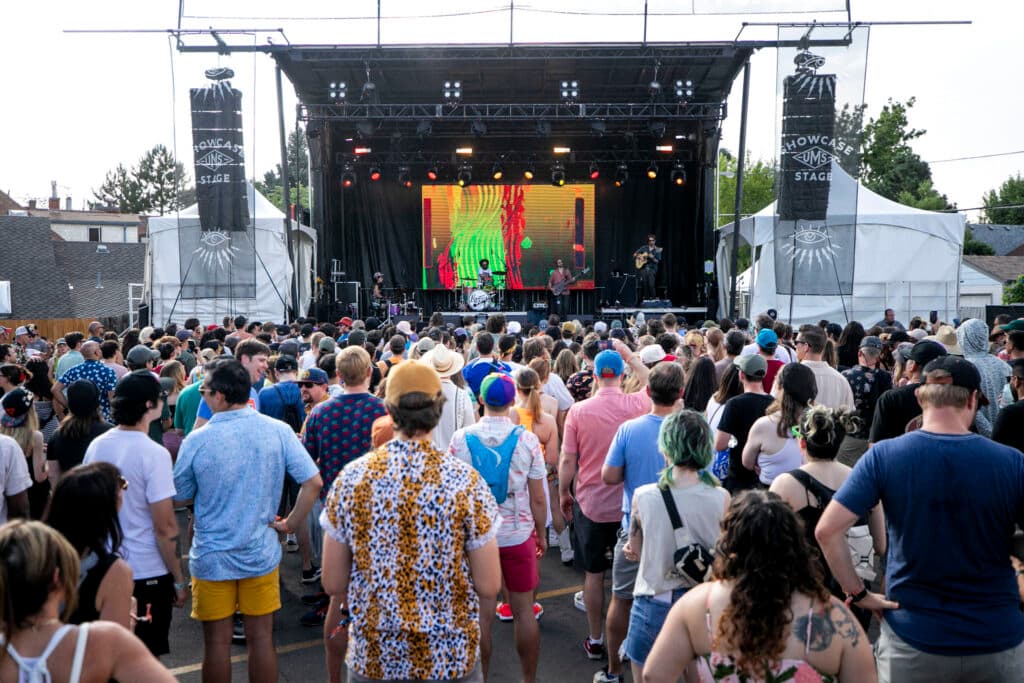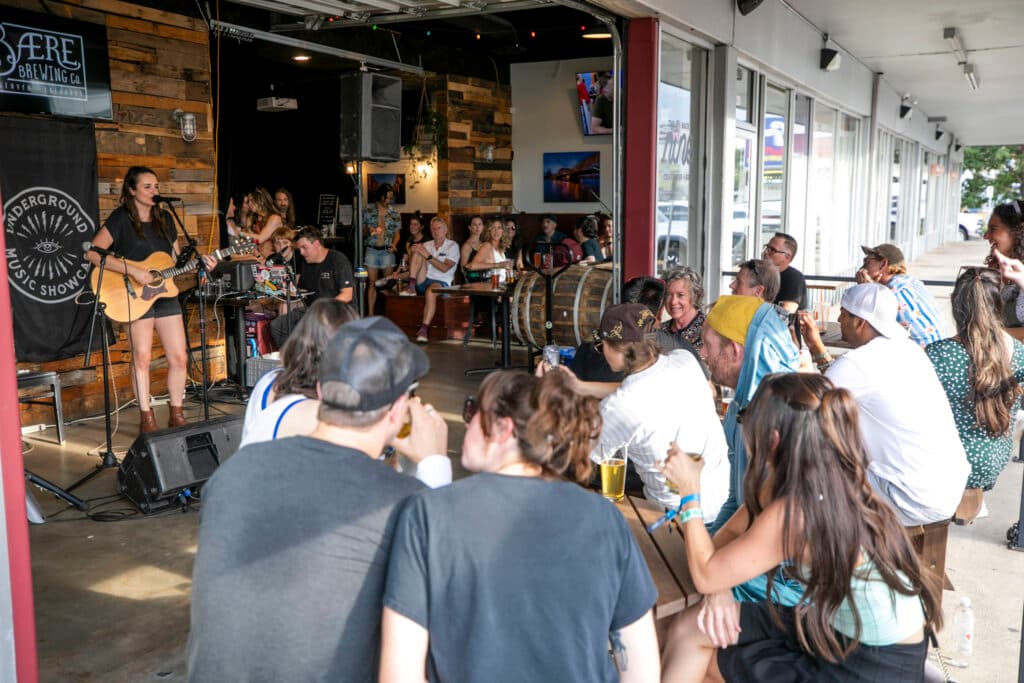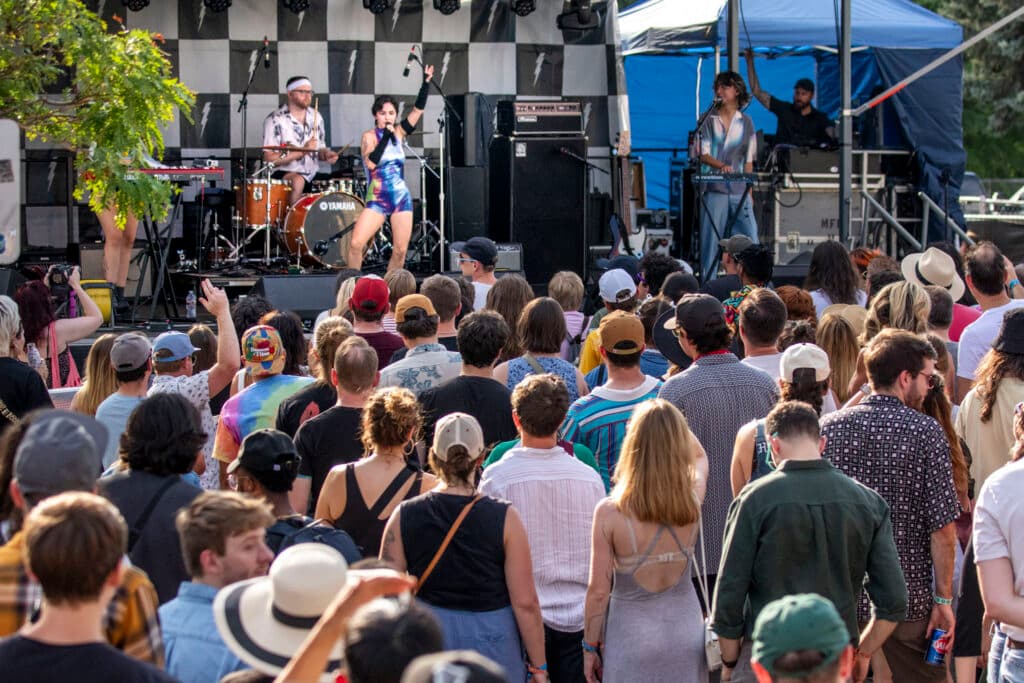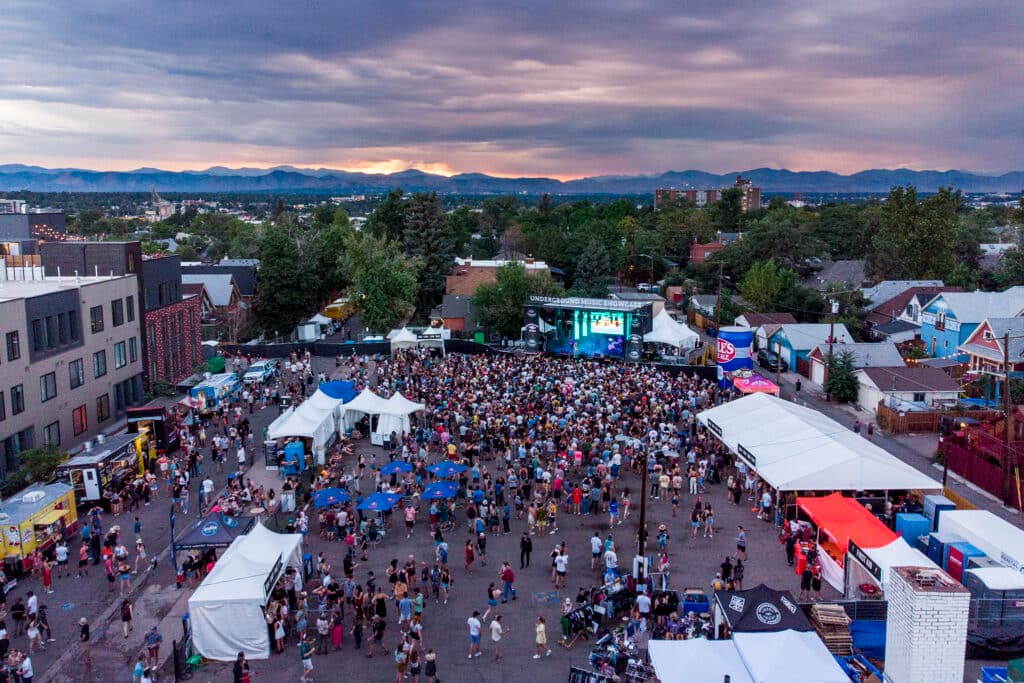The Underground Music Showcase’s 25th anniversary edition could be its last as a summertime, weekend-long festival on South Broadway.
Continuing with the event as it exists is not sustainable, said Jami Duffy, head of Youth on Record, the nonprofit that co-owns UMS with the event production company Two Parts.
“What's happening in the future remains to be seen,” Duffy said. “We don't know exactly what the future of UMS is, but we do know that it will look different.”
It likely won’t be a weekend-long music festival — and maybe not a music festival at all.
A lot has changed since 2000, when UMS was founded by Denver Post reporters John Moore and Ricardo Baca as a scrappy community event, where tickets cost $5 and just a handful of bands played.

A quarter of a century later, more than 10,000 musicians have performed at the festival. The event has become the premier showcase of local artists, a place where musicians like Nathaniel Rateliff, Wheelchair Sports Camp, DeVotchKa and the Lumineers have found traction.
When UMS returns July 25-27, there will be four stages, 12 venues and more than 200 artists. Tickets for a weekend pass currently cost $130 plus another $20 in fees.
Production costs are higher now, too. Ticket sales are down. Safety regulations have increased.
Even if UMS were to sell out, the festival would still be struggling, Duffy said.
The expectations on festival organizers are higher than ever.
“We pay thriving artist wages,” Duffy said. “We have to monitor for climate change, emergency preparedness, safety protocols, fentanyl overdoses.”
What once was a scrappy community event has become a high-cost, professional production.
Duffy says it’s no longer possible to keep running the festival sustainably without additional funding, including government or philanthropic support.
“Something has to shift here, and that's not just for UMS,” Duffy said. “That's for every festival in America.”

But the Denver city government is facing a $250 million budget hole. The city has already reduced the Five Points Jazz Festival into a grant program. And Mayor Mike Johnston is asking departments, like Denver Arts and Venues, to slash their budgets.
Colorado itself has a $1.2 billion budget hole. And the federal government is slashing funding for the arts dramatically.
The city’s arts agency is interested in working with UMS and Youth on Record on surveying the city’s music industry and looking for solutions.
“It seems like this is one where musicians have to pitch in and the venues and promoters and everybody associated with it,” Arts and Venues spokesperson Brian Kitts said. “I don't think that there's a way that government just jumps in and, you know, saves things like this.”
UMS is not alone
NPR described 2024 as “the year music festivals died.”
Westword Music Showcase, the Five Points Jazz Festival and the Juneteenth Fest have all been scaled back or outright canceled.
Grandoozy, an attempt at creating a Coachella-style festival in Denver, only survived one year.

Shawn King, the drummer for DeVotchKa, played the first UMS. A few years later, his band scored the soundtrack for the film “Little Miss Sunshine” and has since found international acclaim.
Over the years, he’s looked forward to the festival as a time to reconnect with old friends, discover new music and generally enjoy the city’s music scene.
“I'm looking forward to it this year,” he said. “I'm gonna see it with new eyes, now that it's wrapping up. It's definitely sad.”
Many festivals he’s participated in over the years have folded.
“I wonder if the model itself needs revamping,” he said.
A tough conversation is brewing
Duffy is optimistic that the end of this chapter of UMS might force a conversation about the role of the music industry in Colorado.
“This announcement really is, in some ways, a call to action, to say: What is next for Colorado music?” Duffy said.

She wants people to come to the festival and enjoy the music, but to also participate in the Get Loud Music Summit, where artists, funders, policy makers and music industry leaders will network and talk about their needs.
Conrad Mata, a musician who has played UMS and also works for Youth on Record, is organizing the summit.
“You have to share knowledge, to share resources,” Mata said. “You have to expand networks, and you also have to just take care of people. So the Get Loud Music Summit is a great opportunity to do all those things.”
What’s next?
Duffy wants philanthropists, small businesses, music fans, city and state government, and others to figure out what the future of the music industry could look like.
“This is a seismic issue in the United States right now about music and music festivals in general and public gatherings,” she said.

Duffy suspects the music scene may go underground again, returning to its DIY roots.
The house party scene is already thriving and gets to the heart of what underground music is, Mata said.
“I think UMS is such an interesting position right now, because it is established and it is formalized, and it is really fun how it's been brought to the forefront and made such a big deal,” Mata said. “If now, in the future, it has to be scaled back and a little bit more guerrilla warfare style, then it might be for the better.”













